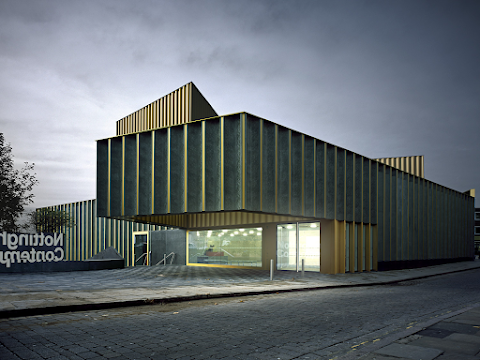"The initial sketch is always an emotion, not a concept" -Samuel Mockbee
I enjoyed the pairing of Jeremy Tills "Scarcity Contra Austerity" and Samuel Mockbee's Rural Studio readings. I felt that Tills article was informative and reinforced a lot of my own thinking with new concepts and better methods of explaining them in detail. He offers alternatives to the more common responses that designers, developers, engineers, etc have selected as ways of dealing with economic and environmental forces affecting design which he outlines as "austerity". Designs described as "minimalist" brought about through a mindset of "economic leanness" and "risk aversion". He makes the argument that by taking this approach architecture inherently is forced to take a backseat to economic and social forces dictated by the 1% to the detriment of the 99%. His alternative to austerity is thinking through a lens of scarcity which he explains "is thinking beyond the object". I really enjoyed this argument and his further explanation of how this approach differs from typical thoughts on sustainable design as it really involves considerations of behaviors of the users rather than technological fixes.
"By concentrating on the non-human, technical aspects of a project, we can too easily overlook the human" -Till
Till includes many examples of the various approaches he describes but Samuel Mockbee's rural studio is a perfect example of designing with scarcity in mind. I found this second reading to be exceptionally inspiring. Mockbee's words and ways of describing all the things about architecture and design and construction that I love and feel passionate about definitely resonated with me.
"For me its the act of drawings that allows the hand to come into accord with the heart" -Mockbee
"Its not about your greatness as an architect but about your compassion" -Mockbee
Especially Mockbee's words about not letting technology and economic affluence overshadow people and place. His mentioning of honest American architecture to me is a direct correlation to scarcity. American history and early American architecture is honest because it is intrinsically tied to the idea of living with scarcity. Obviously not necessarily a scarcity of natural resources but a scarcity of means like limited "people-power" or access to tools or machinery or nearby precedents to go off of. Simultaneously and conversely the earliest colonial settlements and the existing native settlements were rooted in the ideas of "living at the frontier" or "living off the land" which both involved the basic necessities of survival and also building honest architecture through limited means, locally available materials, and direct expression of the cultures which they came from. As Mockbee explains, the rural studio is about "stepping across a social impasse into an honesty that refuses to gloss over inescapable facts". Both Mockbee and Till advocate for an architecture that is not driven by the morals or tastes dictated by those with authority over social or economic trends but an architecture that is grounded in the basic necessities of the human condition which are universal and true, while at the same time expressing that very character in way which uplifts and guides society towards a better tomorrow.







I think you did a really fantastic job breaking down the readings and finding these connecting ideas. I also agree with Till's and Mockbee's points that designing for people, especially people truly most in need of the design, is so powerful. I found the work of Rural Studio really intriguing. I think that the design work they are doing is a great example of how Clemson can enhance the community build program. With our project last year, on one hand we built something that is great for Greenheart and the students that will use it, but it really only grazes the surface in true community design. Being able to really dig into the design to improve the lives of those at a disadvantage is so important, and it would be great to see Clemson start to take on similar projects to that of Rural Studio.
ReplyDelete